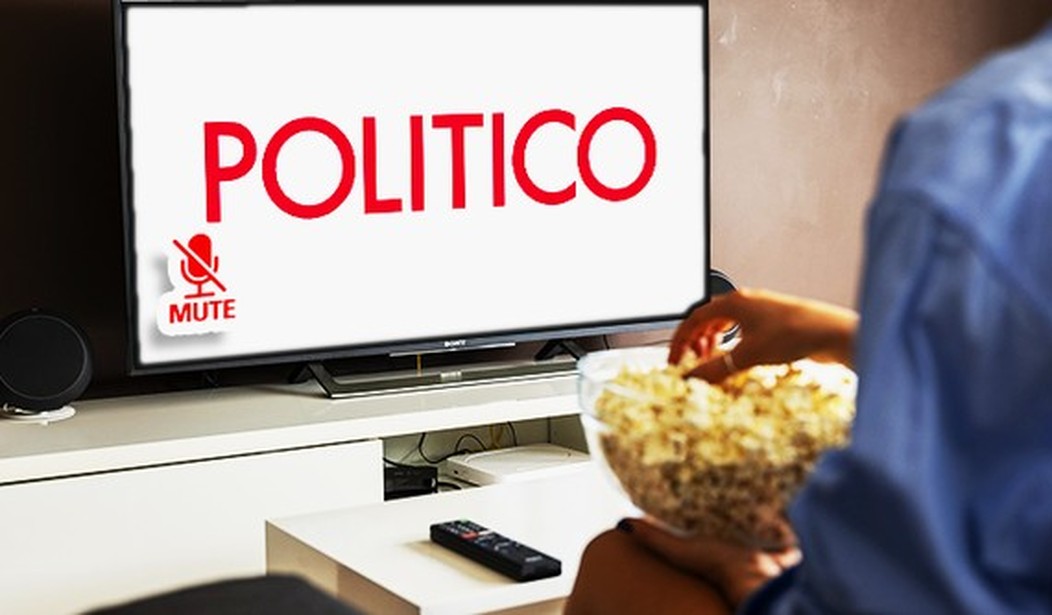The hot news this week in politics has been the sober approach of Elon Musk and DOGE to federal spending outlays, specifically to USAID, and the wailing reactions seen from the Democrats and the intemperate criticisms of this in the press. The amazement in all of this has been the outrage that many have expressed over DOGE looking to eliminate wasteful, useless spending. This is apparently so contradictory to political thinkers as to appear like a hate-crime.
Now, we are in the midst of an adjacent storyline, one involving Politico and other news outlets, and the federal spending involving these media sources. There have been outrage, knee-jerk defenses, and mistaken attributions, all amid eye-popping money figures that sometimes defy explanation. So far, we are hearing of a list of journalism outlets and wired services -- from The New York Times, The AP, BBC, Reuters, and others -- coming to light.
The BBC isn't happy. pic.twitter.com/69igyoZwO0
— Carl Benjamin (@Sargon_of_Akkad) February 6, 2025
Early on Wednesday, a news item emerged that, at Politico, they were not making payroll. Following some speculation, items were springing up on social media showing the news outlet had been on the receiving end of millions of dollars in federal payouts. Then at the White House press briefing, Karoline Leavitt announced those payments would cease. It has created a firestorm of intrigue and accusatory commentary, and not all of it has been accurate, as expected, but not all of it is pure and wholesome either.
To begin with, it is showing that, despite the claims many have made, Politico - and the other outlets named - were not getting all payments from USAID. Also, the money being paid, at least as far as Politico is involved, were not grants from the government but payments made for subscriptions to Politico Pro, the outlet’s coverage of all things happening in D.C. These are significant sums, with some people totaling the figure over the past handful of years going into the tens of millions of dollars.
Now, the best-case scenario is this can be explained to an extent. We have seen, across the web, screenshots of departments and agencies dropping hundreds of thousands of dollars on only a few dozen accounts. But once you take into account these payouts occurring over a span of years, those examples come to a more manageable sum of thousands of dollars annually per account holder, within the realm of the going rate for this comprehensive service. But the demons are in the details.
Questions need to be asked. (Something media expert Brian Stelter will not engage in, as he was issued a prepared statement from Politico and saw no reason to dig further into the issue.) The scope of these government contracts is the issue, and the sums paid out reveal a massive dose of revenue for the news outlet courtesy of federal contracts. That places Politico in a precarious position regarding objectivity. Let us look into just one of these deals with one agency to see more curiosity.
The National Park Service has billing with Politico for $860,000. This is for a service normally regarded for the political wonks class, and yet even if this is spread out over a four-year period and divided among 55 employees, you are looking at over $4,000 per account. This is a significant source of revenue for Politico.
This is the contract that boggles.
— Lie-Able Sources (@LieAbleSources) February 6, 2025
Even as this is over the span of years, why would the Park Service need this many subscriptions at thousands of dollars apiece... pic.twitter.com/i3cNa6iOZZ
There is another wrinkle in the specifics that needs to be addressed. Some of these subscription contracts carry a non-compete designation, so we have this news outlet getting an exclusivity deal within federal agencies. In the linked example above, we see this leads to Politico raising the annual contract by about $10,000 annually, or close to $200 per subscription, leading to hundreds of thousands each year just in price increases. There is no way this can be considered a healthy matrix for unbiased news reporting to be taking place.
Also contrary to government contract policies, there was no competition sought out in obtaining these Politico Pro accounts. pic.twitter.com/qgL6zO0qXn
— Lie-Able Sources (@LieAbleSources) February 6, 2025
This has the marks of being a sweetheart deal for the outlet. Now once again, there could be a way of justifying all of this as legitimate business, if we go the way of playing Devil’s advocate. That said, even if this is all on the level, we are talking about a news outlet beholden to federal contracts, which were drawing in millions of dollars annually. How likely will this type of deal generate a level of resistance towards holding accountable the very entity supplying them with lucrative accounts?
I covered something very similar at my Townhall media column, in December, when Mike Benz revealed how Reuters was involved in numerous government contracts. Beyond its news division, the company offers business services, payroll functionality, and other software options. It worked with 11 agencies, from which it drew in millions of dollars from each annually. What I mentioned at the time also applies to Politico today; how likely are you as a news outlet to report on adverse issues that would impact these government bodies, when they hold a substantial paycheck for your outlet?
As we have seen from this outlet, there is the likelihood of pulling your punches, or plying your trade on behalf of your massive customer.
When the Biden campaign needed a defensive ploy ahead of the 2020 election, look at where that now fully debunked letter from 51 intelligence officials--declaring the Hunter Biden laptop story “Russian disinformation”--derived. It was provided by the famed intelligence community media fluffer Natasha Bertrand – in Politico. We just recently had a discussion between reporters Tara Palmeri and Marc Caputo, detailing how during their previous time at Politico, it saw them having stories about Hunter Biden killed. As Caputo explained, referencing that infamous intel letter (see video below):
I was told this came from on high inside Politico – 'Don’t write about the laptop, don’t talk about the laptop, and don’t Tweet about the laptop'. And the only thing that Politico ended up writing was that piece that called it ‘disinformation’, which charitably could be called misinformation, at the least.
And this is the outlet that has been sweeping up large amounts annually from the same government it has shown to serve as a protection agent. It remains to be revealed how many other outlets have similar deals in the system. This could grow into the next, large issue for the old model media industry, one that can see even more loss of trust, credibility, and audience share as a result.














Join the conversation as a VIP Member